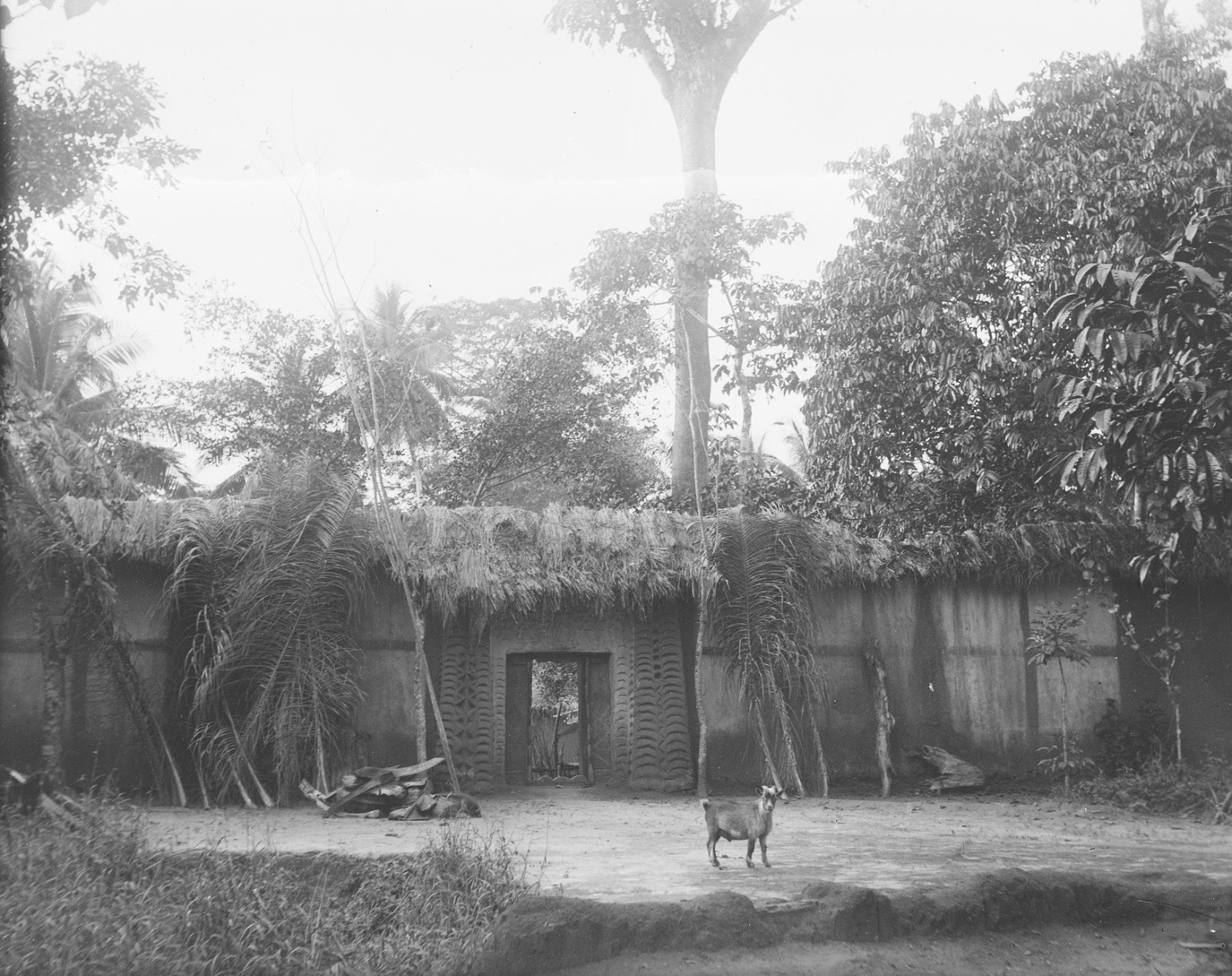
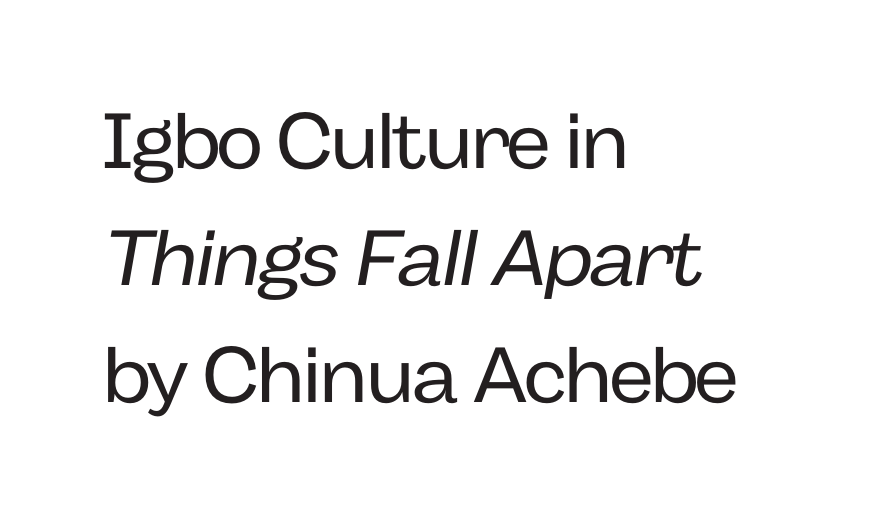
Alissa Wheeler
Masculinity
Igbo culture revolves around men and masculinity. There are various factors that contribute to the respect and masculinity of Igbo men:
- Control over children and women
- Building one's own home
- The size of one's barn/shed
- Success cultivating yams
- Having at least one son
- Helping/contributing to the community
- Titles/statuses held within the community
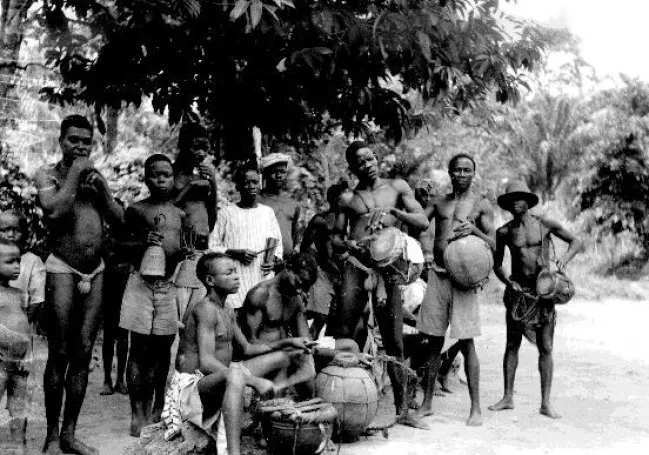
Quotes on Masculinity in Things Fall Apart
- "Okonkwo ruled his household with a heavy hand. His wives, especially the youngest, lived in perpetual fear of his fiery temper," (pg.13).
- "No matter how prosperous a man was, if he was unable to rule his women and his children (especially his women) he was not really a man," (pg.53).
- "They had something to say for every man. Some were great farmers, some were orators who spoke for the clan; Okonkwo was the greatest wrestler and warrior alive," (pg.118).
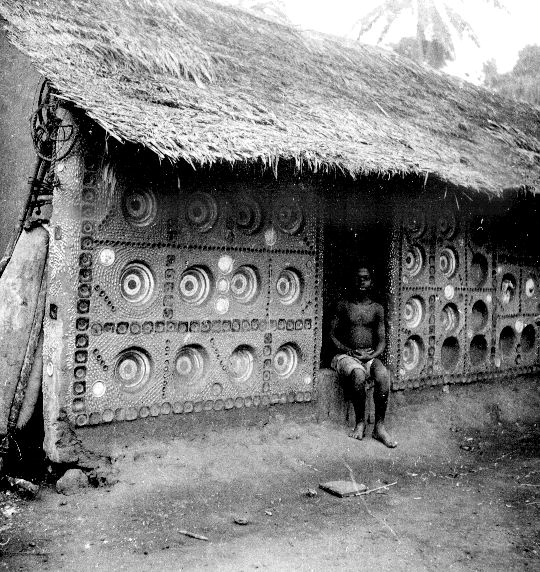
Femininity
Femininity and feminine roles in Igbo culture are centered around servitude. Women are expected to obey their husbands, cook for their households and the village when necessary, and take care of the children.
- Women may only cultivate certain crops that are typically less valuable
- Reduced to "lowly" practices such as witchcraft and herbal studies
- Valued for their ability to carry children
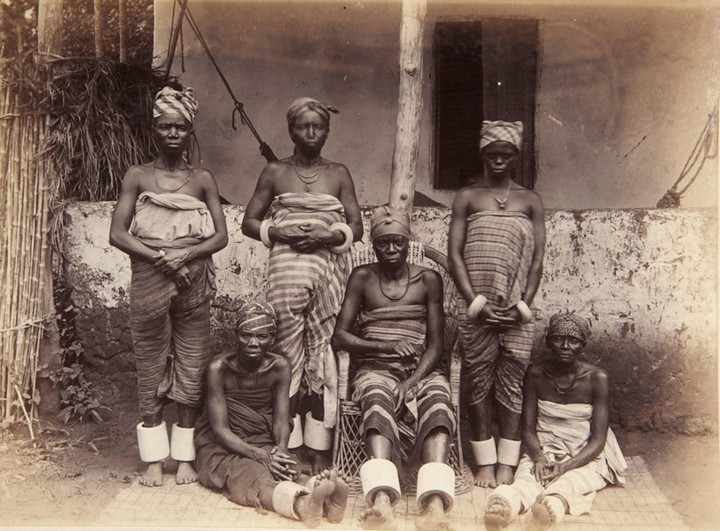
Quotes on Femininity in Things Fall Apart
- "She wore the anklet of her husband's titles, which the first wife alone could wear," (pg.20).
- "His mother and sisters worked hard enough, but they grew women's crops, like coco-yams, beans and cassava," (pg.23).
- "These women never saw the inside of the hut. No woman ever did. They scrubbed and painted the outside walls under the supervision of men," (pg.88).
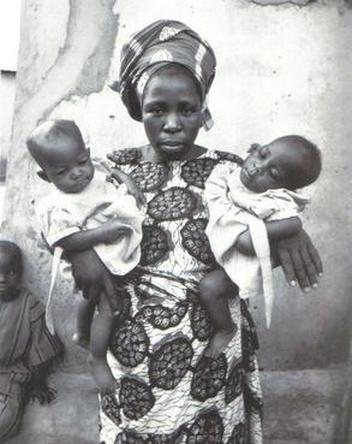
New Yam Festival
The New Yam Festival is held in different regions all over Africa with variations in each region's practices. One value they all hold: Yam is the king of crops and deserves celebration for its cultivation each year. Traditions for Igbo New Yam Festival:
- Week of Peace - A week before planting yams, there is to be no fighting or quarreling within the village
- No consumption of new yams before the set festival date
- First of the new yam crop/largest of the crop are to be held in a shrine until the next harvest
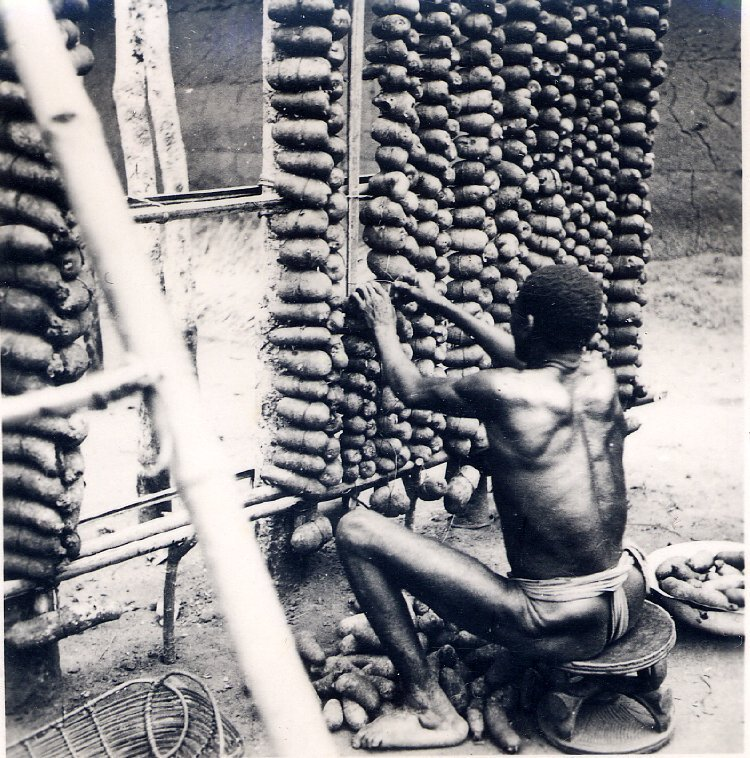
New Yam Festival Cont.
- Head of households must make a sacrifice (typically a chicken/fowl) to their personal gods (Chi) before consuming the new crop
- Celebrated with music, dancing, and wrestling
- Typically held in July - depending on the crop's growth
- Consumption of the yam is enjoyed amongst community members and is prepared in a variety of ways
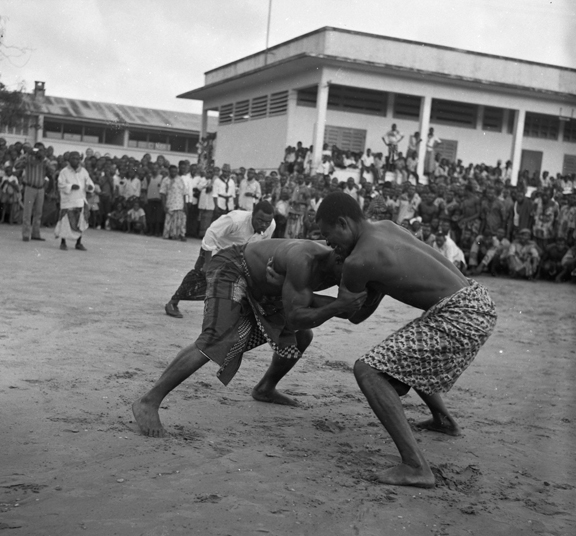
Quotes on the New Yam Festival in Things Fall Apart
- "No work was done during the Week of Peace. People called on their neighbors and drank palm-wine," (pg.31).
- "The Feast of the New Yam was held ever year before the harvest began, to honor the earth goddess and the ancestral spirits of the clan. New yams could not be eaten until some had first been offered to those powers." (pg36).
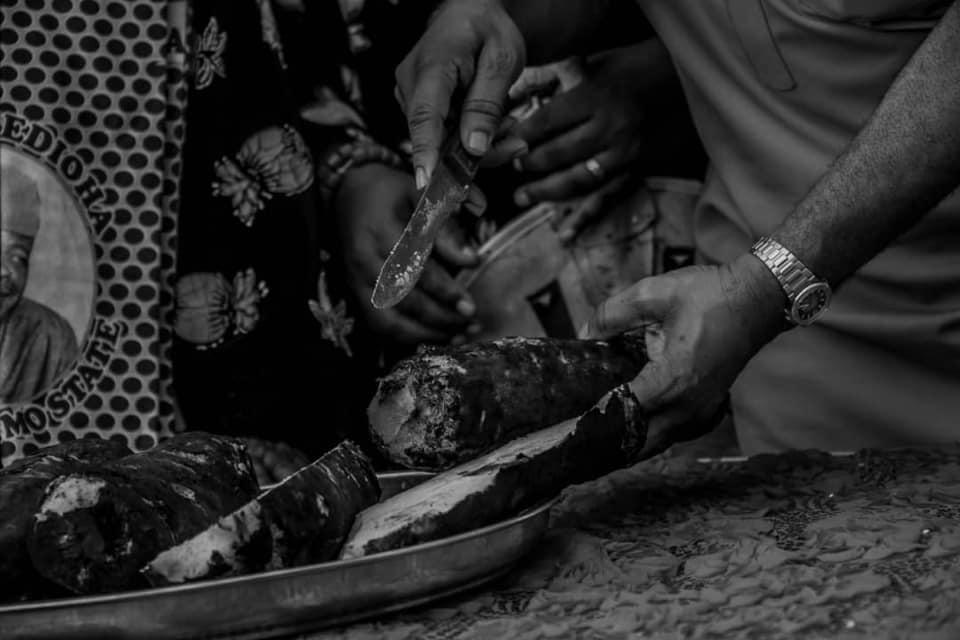
Quotes on the New Yam Festival in Things Fall Apart Cont.
- "Yam foo-foo and vegetable soup was the chief food in the celebration. So much of it was cooked that, no matter how heavily the family ate or how many friends and relatives they invited from neighboring villages, there was always a large quantity of food left over at the end of the day," (pg.36-37)
- "Early that morning as he offered a sacrifice of new yam and palm-oil to his ancestors he asked them to protect him, his children and their mothers in the new year," (pg.39).
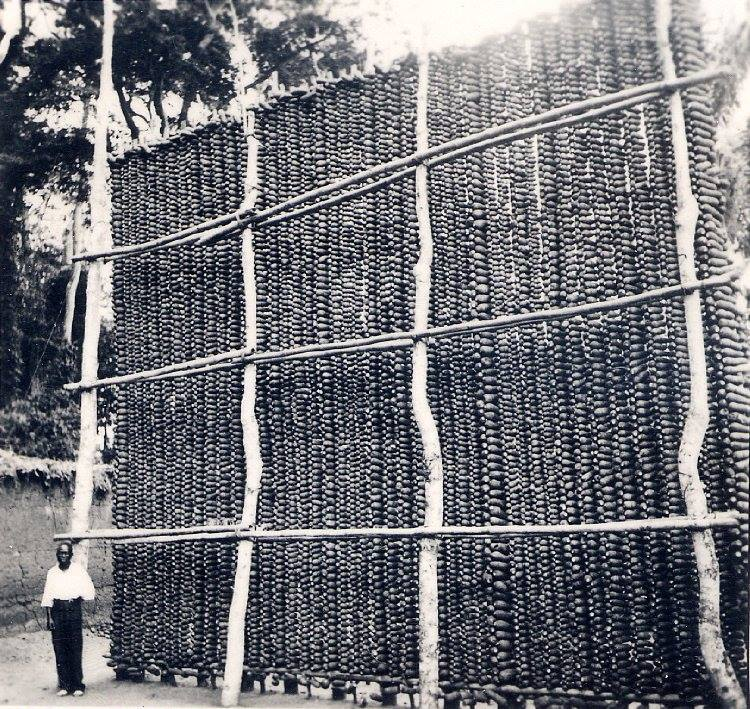
Works Cited and Referenced
- Achebe, Chinua. Things Fall Apart. 1st ed., Anchor Books, 1994.
- Coursey, D. G., and Cecilia K. Coursey. “The New Yam Festivals of West Africa.” Anthropos, vol. 66, no.3/4, 1971, pp. 444–84. JSTOR, http://www.jstor.org/stable/40457684. Accessed 15 May 2023.
- Kalu, Ogbu U. “GENDER IDEOLOGY IN IGBO RELIGION. The Changing Religious Role of Women in Igboland.” Africa: Rivista Trimestrale Di Studi e Documentazione Dell’Istituto Italiano per l’Africa e l’Oriente, vol. 46, no. 2, 1991, pp. 184–202. JSTOR, http://www.jstor.org/stable/40761902. Accessed 21 Apr. 2023.
- KORIEH, CHIMA J. “Yam Is King! But Cassava Is the Mother of All Crops: Farming, Culture, and Identity in Igbo Agrarian Economy.” Dialectical Anthropology, vol. 31, no. 1/3, 2007, pp. 221–32. JSTOR, http://www.jstor.org/stable/29790779. Accessed 15 May 2023.
- Odimegwu, Clifford, et al. “SHORT REPORT: The Cost of Being a Man: Social and Health Consequences of Igbo Masculinity.” Culture, Health & Sexuality, vol. 15, no. 1/2, 2013, pp. 219–34. JSTOR, http://www.jstor.org/stable/23524981. Accessed 21 Apr. 2023.